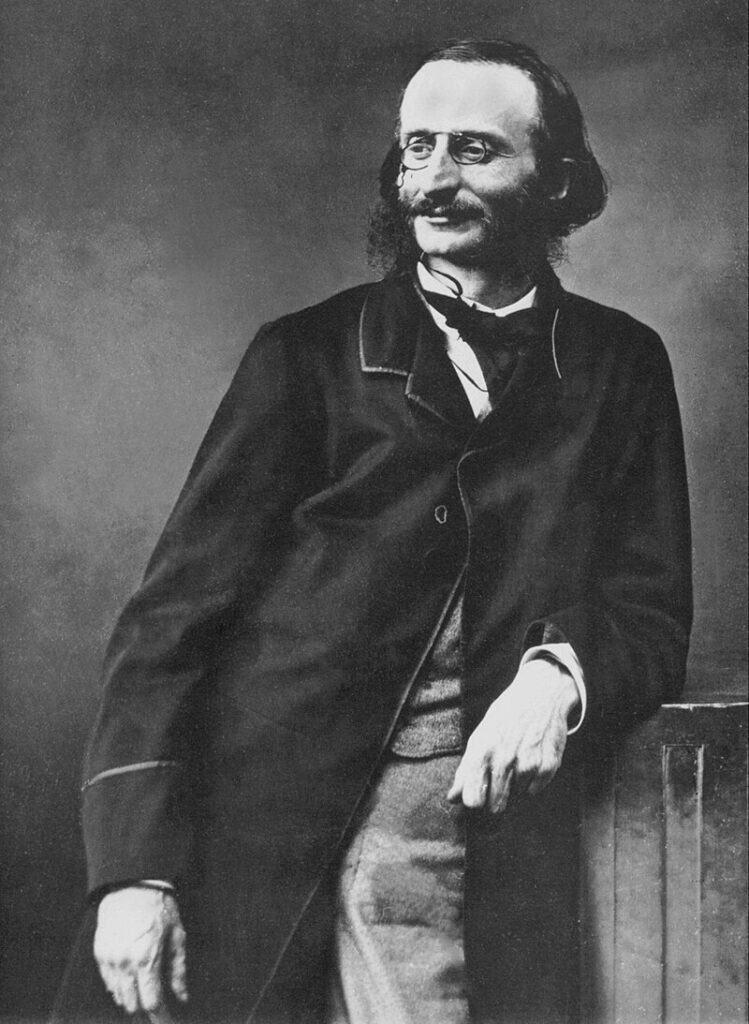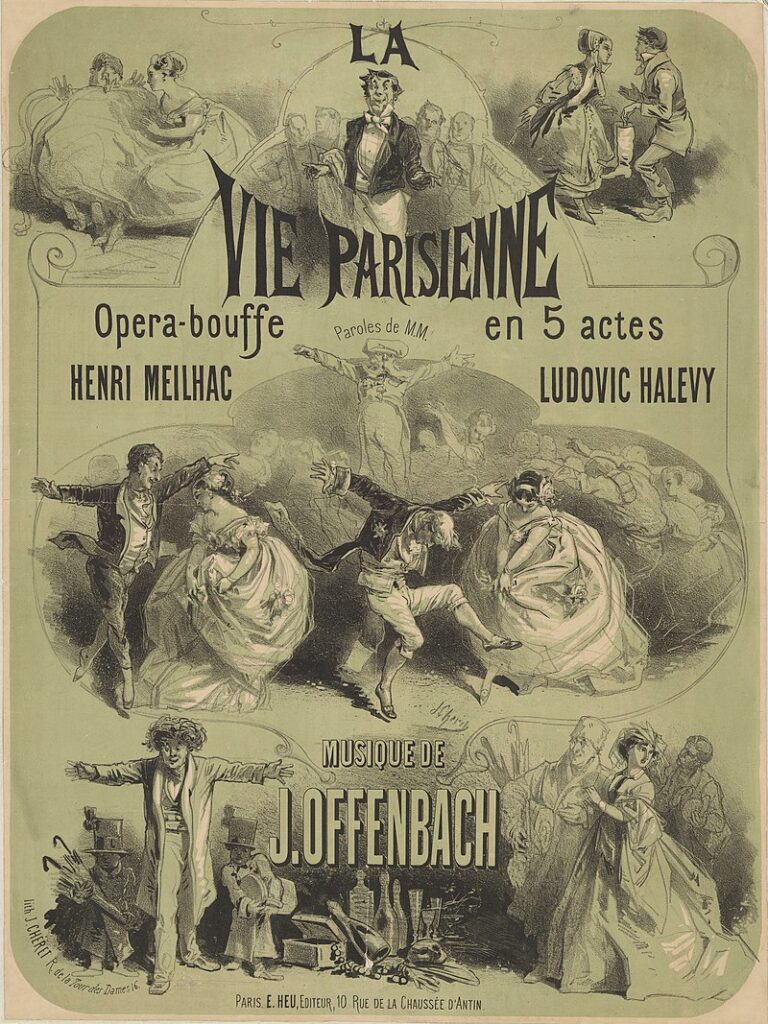Nicolas Robles
Badajoz, Spain

Born in Cologne in 1819, Jakob Eberst (Jacques) Offenbach showed early musical talent. His father taught him to play the violin when he was six years old, and at the age of nine, he began to play the cello. At fourteen, he was accepted as a student at the Paris Conservatory directed by Cherubini. At that time, he changed his name to Jacques. But he soon became bored with his studies and left. He had a few temporary jobs in theater orchestras before receiving a permanent appointment in 1835 as a cellist at the Opéra-Comique. He was no more serious there than he had been in the conservatory, and regularly had his pay docked for making jokes during performances. In 1844, he converted from Judaism to Catholicism so that he could marry Herminia de Alcain, the daughter of a Spanish Carlist general. He was twenty-five years old and the bride was seventeen.
In the early 1850s, Offenbach composed songs and incidental music for the Comédie-Française. He became known for his operettas, or light operas, several of which are still performed today. Notable among these are Orpheus in the Underworld (1858) with its famous can-can, La Belle Helene (1864), La Vie Parisienne (1866), and La Perichole (1868).1 He influenced several other composers of such light and melodious works such as Franz von Suppe, Johann Strauss, and Sir Arthur Sullivan. As his health was beginning to fail, he began work on his masterpiece, the Tales of Hoffmann, for which he is most remembered. Adapted from three stories by ETA Hoffmann, it was not quite finished when he died in Paris in 1880.
The cause of Offenbach’s death is not clear. Alain Decaux gave a description of his last hours: “Suddenly, around four o’clock in the afternoon, he felt a choking sensation. He put his hand to his heart. He repeated several times in a barely audible voice: ‘It hurts! It hurts! It’s here!’… irremediably, asphyxia took over his lungs.”2 This is very close to the description in a biography by Alexander Faris3: “he was working on the last act of Les Contes d’Hoffman when he fainted. When he came round he was in a great pain, and said, ‘I think tonight will be the end.’” It is also similar to an earlier biography by Martinet.4 Did the composer have an acute myocardial infarction?

Some sources have said that the cause of death was certified as heart failure brought on by acute gout.5 In the Offenbach biography by Peter Gammond, the death is described as follows: “he was looking over the piano arrangement…when he had a choking fit…On the morning of October 5th, 1880, at about half-past three, he died, of gout of the heart.”6 This is a strange diagnosis. Epidemiological studies have shown that individuals with gout are more likely to have strokes, ischemic heart disease, or heart failure, but gout itself is not a cause of death.7 Offenbach did have frequent flares of gout, and he had become increasingly frail. Toward the end of his life, he was too feeble to stand, and drank only grog. According to a biography by Yon,8 “From September 25 onwards, he was forced to remain in bed due to a new attack of gout, complicated by a very strong cough.” He may have had a pulmonary disease, most likely tuberculosis, or a systemic inflammatory disease that included pericarditis. Septic arthritis could have led to endocarditis and heart failure, although no fever has been recorded.
Offenbach is buried in the cemetery of Montmartre.
References
- Edwards, Bobb. “Jacques Offenbach.” Find a Grave. https://www.findagrave.com/memorial/775/jacques-offenbach.
- Decaux, Alain. Offenbach, roi du second empire. Paris: Le Club De La Femme, 1970.
- Faris, Alexander. Jacques Offenbach. London: Faber & Faber, 1980.
- Martinet, Andre. Offenbach, sa vie et son ouvre. Paris: Dentu et Cie Editeurs, 1887.
- Predota, Georg. “On This Day: 5 October: Jacques Offenbach Died.” Interlude. Accessed December 1, 2023. https://interlude.hk/on-this-day-5-october-jacques-offenbach-died/.
- Gammond, Peter. Offenbach: His Life and Times. New Jersey: T.F.H. Publications, Inc., 1981.
- Kang, HS et al. An elevated likelihood of stroke, ischemic heart disease, or heart failure in individuals with gout: a longitudinal follow-up study utilizing the National Health Information database in Korea. Front Endocrinol (Lausanne). Aug 23, 2023;14:1195888. doi: 10.3389/fendo.2023.1195888.
- Yon, Jean-Claud. Jacques Offenbach. Paris: Gallimard, 2000.
NICOLAS ROBERTO ROBLES is a full professor of Nephrology at the University of Extremadura (Badajoz) and member of the Academy of Medicine of Extremadura.

Leave a Reply